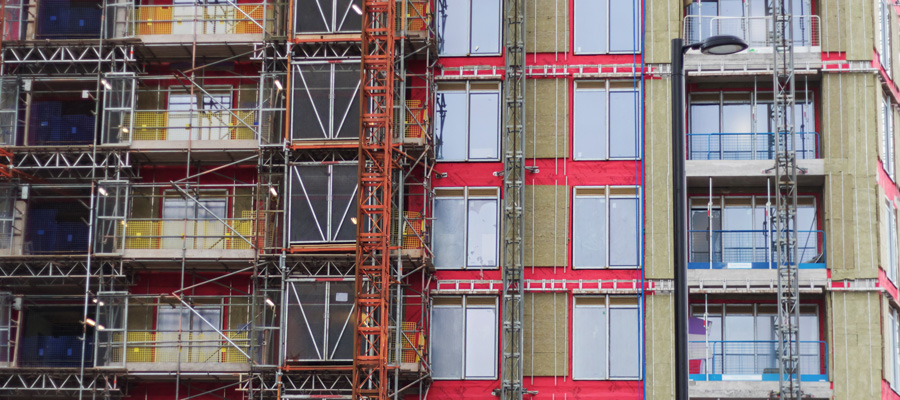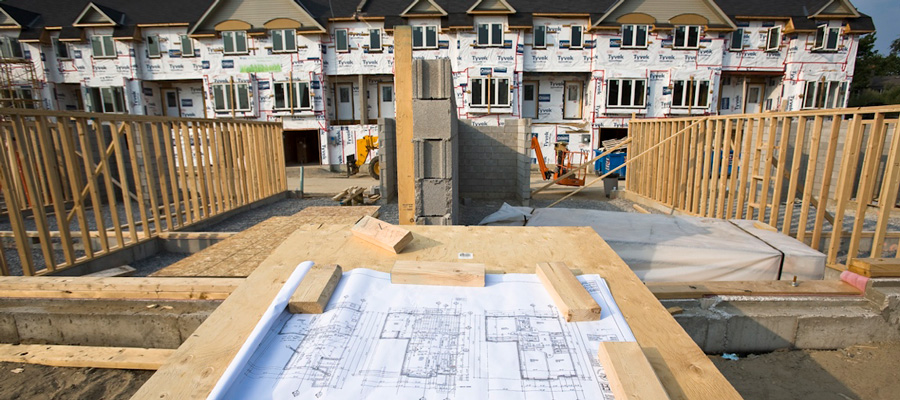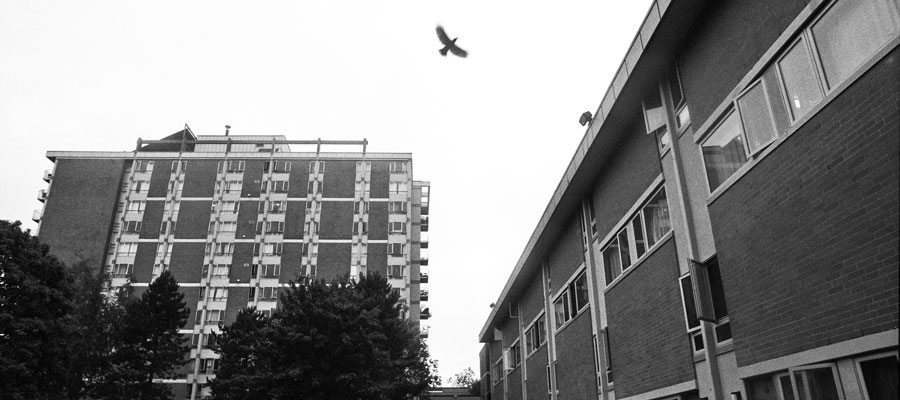Everything you wanted to know about the housing taxes and expenditures in BC Budget 2018

BC Budget 2018 was billed to have major investments in housing, and did not disappoint. Indeed, the surprise of the Budget was just how far the BC government went on the demand side through new tax measures to make the property tax system much more progressive, and to discourage out-of-province investors from parking capital in BC real estate.
The lead-up to the BC Budget included some notable moves by the City of Vancouver and the federal government. The National Housing Strategy delivered on some important pieces of the puzzle, such as shoring up existing social housing and a new housing benefit (rental supplement), but overall it was a disappointment by failing to make major investments in new affordable housing stock. The Housing Vancouver Strategy is a step up, and includes a number of innovative ideas, but (a) it is just the City of Vancouver, and (b) there are major constraints on what a municipal government can do.
So all eyes were on the BC Budget to step in with more meaningful measures. Here’s a run-down of the tax and expenditures for housing in BC Budget 2018. The new measures brought in by the BC government are significant and echo recommendations we have made over the past couple of years, with a view towards cooling the demand side of the market—in particular external capital flows—while investing in new affordable housing stock.
Progressive property taxation
Perhaps the biggest game-changer in the budget is action to make the provincial property tax progressive.
It is worth noting at the outset that BC’s property tax goes into general revenues, despite still being referred to as the “school tax” for its origins in being used to fund K-12 education (which is still what is done in most of the United States).
The basic school/property tax is calculated based on a “mill rate” that is multiplied by a property’s assessed value. The mill rate is recalculated each year to meet a revenue target. This means that unlike the provincial sales tax, for example, which has a set rate so that tax revenues grow with the economy, the property tax has not been linked to the real estate price escalation seen in recent years. Since its inception, the same tax rate has been applied to all properties regardless of the overall property value.
The 2018 BC Budget, however, cracked open this practice, and introduced two new progressive tiers on top of the basic property tax, starting in 2019, and these do have fixed rates.
For assessed property value above $3 million, the rate is 0.2%. For example, a home worth $4 million would pay an additional 0.2% on the $1 million above the threshold, or $2,000 per year in additional property tax.
A second tier applies for assessed value in excess of $4 million at a rate of 0.4%. So a home assessed at $5 million would pay an additional $4,000 on the last million, plus the $2,000 described above, for a total increased property tax of $6,000.
The same tax rate has long been applied to all properties regardless of their value. The 2018 BC Budget, however, cracked open this practice, and introduced two new progressive tiers on top of the basic property tax.
Keep in mind that this new progressive formulation is actually fairly mild compared to the recommendations made by SFU tax professor Rhys Kesselman, who called for a surtax with several brackets starting at 0.5% for assessed values over $1 million, and rising to 2% for values above $3 million (although Kesselman’s version includes a credit against income tax).
Nonetheless, this is a serious step towards the progressive taxation of wealth to lean into growing inequality, as recommended by economists like Thomas Piketty. To my knowledge, this is the first move to progressive property taxation in North America, although there are several examples in Europe. The BC NDP had previously proposed a progressive property tax back in 1993, but backed off.
The introduction of progressivity to the annual property tax sets an important precedent, and opens the door for future tax reforms that enhance fairness and allow us to “go where the money is” in our province (namely real estate). Because real estate wealth, unlike income, cannot be hidden, progressive property taxation can be a vital source of future revenues.
I’ve seen some sticker shock in the media reporting of the tax, largely from seniors on fixed income who bought homes decades ago that would now be subject to the higher tax. However, it is worth noting that seniors can defer their property taxes owed until the time the property is sold (at which time they would realize a massive and untaxed capital gain). There is no reason why we should not be taxing the gains of those who “won the lottery” on BC real estate.
On a full-year basis, the government estimates the new progressive tiers will raise $200 million per year. That will finance a lot of affordable housing moving forward, although the government has not explicitly tied those revenues to housing expenditures.
A second welcome aspect of reform is a more progressive property transfer tax (PTT) paid by the buyer when a property is sold. The PTT was already a progressive tax, with a previous top rate of 3% on value over $2 million. The 2018 budget adds a new top rate of 5% on the value above $3 million. The new rate is applicable immediately, and will raise $81 million on a full-year basis.
Expanding the foreign buyer tax
Back in August 2016, the previous BC government (finally) stepped in with an effort to cool the Metro Vancouver housing market: a 15% foreign buyer tax (FBT). In the wake of the tax, the market stalled, and some of the air was let out of the top end of the market. But by mid-2017, real estate price inflation came thundering back (albeit more concentrated in the condo market than pricier single-family homes).
Budget 2018 increases the FBT to 20% and expands its scope beyond Metro Vancouver to include the Fraser Valley, the Capital and Nanaimo Regional Districts on Vancouver Island, and the Central Okanagan Regional District. In light of reports of foreign capital seeking investment opportunities outside of Vancouver, this is a sensible move. According to the Budget, the beefed-up FBT will raise an additional $40 million per year.
A new speculation tax
The new speculation tax is somewhat misnamed. It’s more of a provincial version of the City of Vancouver’s Empty Homes Tax, which is aimed at properties that are either vacant or held by owners with suspiciously low incomes. It’s not a tax on speculation (in the sense of flipping properties for short-run capital gains), but rather on those who are using BC real estate as a safety deposit box for their capital.
The speculation tax starts in at a modest 0.5% on assessed value in 2018, then jumps to 2% in 2019. Principal residences and long-term rental properties will be exempt, and the government will create a form to streamline the administration by identifying a very high percentage of homes that qualify for up-front exemptions. The long-term part means Airbnb or other short-term rentals are not exempt. Also, the tax will only apply in the same geographical areas as the FBT, so owners of vacation properties in much of the province would not pay the tax.
Those who do not pass the up-front screen would have to pay the tax, but they would get a non-refundable credit against BC income tax payable. Thus, in practice, the tax will fall narrowly on a small number of owners who do not declare much or any income in BC. Non-resident owners, whether from Asia or Alberta, would pay this tax if they leave the home vacant.
The speculation tax a powerful incentive to rent out a vacant property: the owners of the $5 million home I describe above would have to pay $100,000 annually to keep it vacant.
This a powerful tax incentive to rent out a vacant property: the owners of the $5 million home I described above would have to pay $100,000 annually to keep it vacant. This will give a boost to available rental stock. The budget estimates the speculation tax will bring in over $200 million per year, although this will depend on how absentee owners react to the new tax provisions.
What will be the impact of these new tax measures on the housing market?
Time will tell, but the Finance Minister was clear that the intent of these tax reforms is for prices to drop. That signal to the markets alone is significant. And the prospect for non-residents to have to declare their worldwide income to BC authorities (this is listed as an information collection item for the purposes of the speculation tax) is likely to put a chill on many transactions.
In addition to powerful incentives to not leave homes vacant, high taxes on more expensive properties will encourage densification and the creation of smaller, more affordable units. This reinforces the recent call by the City of Vancouver through its Housing Vancouver Strategy to densify its vast swath of single-family neighbourhoods, a necessary condition for the city’s growth and ability to provide affordable housing.
Overall, this is a much-needed package of tax reforms, similar to what we have called for. Two years ago, tabling such a package would have been much more controversial, but the crisis has grown so much, as has our collective understanding of the underlying causes (Kathy Tomlinson’s recent exposé about illegal fentanyl profits funding money-laundering shadow-banking operations show how deep is the rot). As a result, the new moves caused barely a ripple of outrage.
Building more affordable housing
Also most-welcome in Budget 2018 is a commitment to the build-out of new affordable housing, although not quite to the tune of the 114,000 units promised during the election. The commitment is for $6 billion over 10 years to build 33,700 units. This total includes housing expenditures already announced in the September 2017 mini-Budget and in the previous government’s February 2017 Budget.
Most of these will be affordable rental stock (19,200 units), and another decent portion for student housing (5,000 “beds” it is stated, so perhaps some sharing of accommodation). The remainder goes towards marginalized groups: modular housing for the homeless (3,700 units), supportive housing (2,500 units), housing for women and children fleeing abuse (1,500 units) and housing for Indigenous people (1,750 units).
My number-crunching, as well as that of the BC Non-Profit Housing Association, suggests much more than this is needed: between 5,000 and 10,000 units per year in Metro Vancouver alone to keep up with growing population and address the backlog of need.
Much more housing stock is needed: between 5,000 and 10,000 units per year in Metro Vancouver alone to keep up with growing population and address the backlog of need.
So it’s important to keep pushing for the full 114,000 units promised. That number does come up in the Budget: to reach it, the BC government is winding down the ineffective program of loans for first-time buyers, brought in by the previous government last year, and using that money to create a Housing Hub aimed at partnering with non-profits, for-profits, faith groups, local governments and anyone else who wants to contribute to building more affordable housing.
The budget also builds on the National Housing Strategy commitment to shore up existing affordable housing, with BC committing to more than $300 million in reinvestments in BC’s social housing stock. This includes essential repair and maintenance, while also addressing the need for energy efficiency upgrades. This is something we’ve called for, and is a key element of climate justice.
Finally, BC’s two rent supplement programs, SAFER for seniors and RAP for working families, get a boost so as to increase eligibility. These will be complemented by the Canada Housing Benefit announced by the feds last fall, which will begin in 2020.
Bottom line
All of that said, we have to remember that housing is a long game, and BC has a lot of catching up to do. New housing is not going to instantly appear; it will take time to build. The impact of the new tax measures will be interesting to watch in real time over the coming months and years.
Conspicuously absent from the Budget was the NDP’s proposed $400 renters’ rebate. This is still under consideration, and could be tabled in a future budget. We have recommended that the existing $800 million Home Owner Grant be converted into a credit for low- to middle-income renters and owners alike, which would thus have no impact of the BC Budget’s bottom line.
Combined with federal and municipal efforts, BC now has major new housing policies in place that address both the demand and supply side of the markets. It’s fair to argue that more can and should be done, but these combined moves represent a major public reorientation to housing for the first time since governments started getting out of the game in the early 1990s.
Topics: Housing & homelessness, Provincial budget & finance, Taxes



